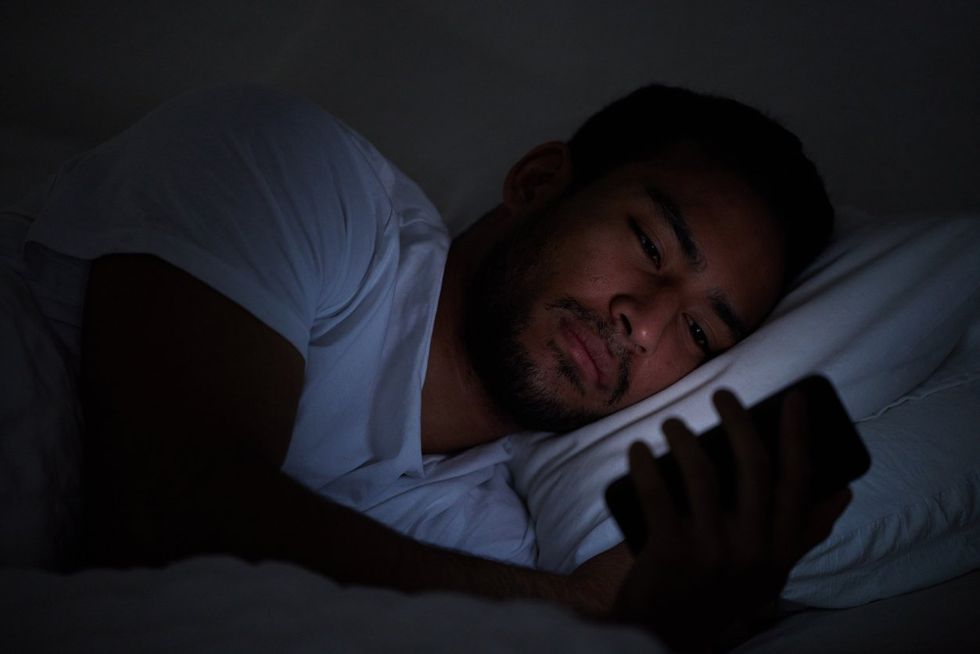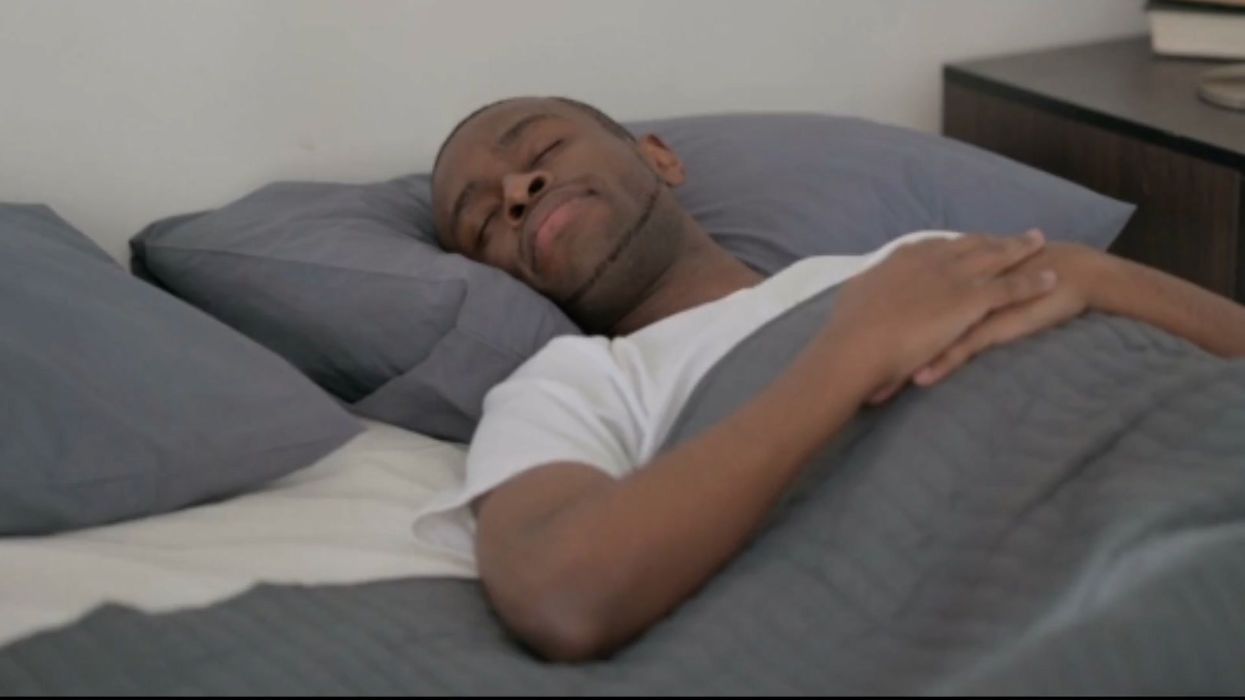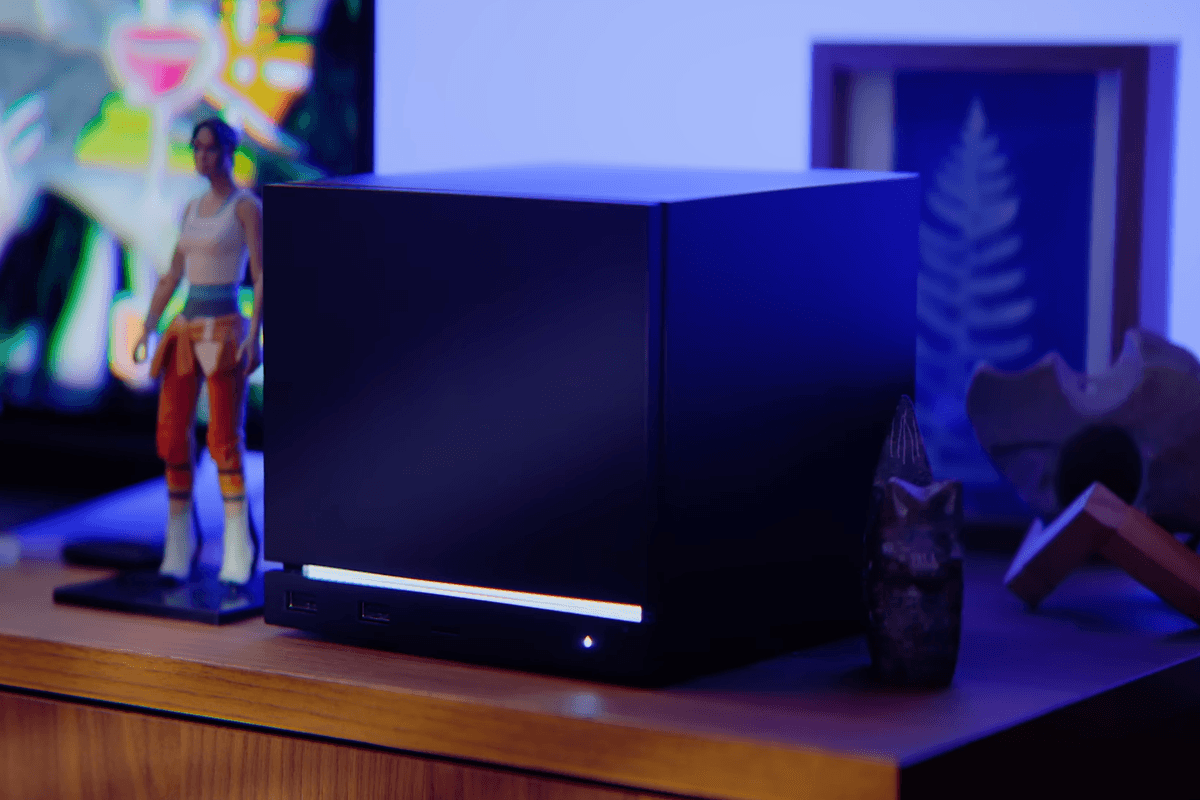Getting a decent night's sleep is important for our health, but a lot of us don't get the recommended eight hours.
Three-quarters of Brits get less than eight hours of sleep, while one in six get by on less than six hours each night, according to YouGov.
Meanwhile across the pond, over 17 per cent of adults had trouble staying asleep most days or every day of the past month, 2020 data from the Centers for Disease Control and Prevention (CDC) shows.
Now, Dr. Biquan Luo, a San Francisco sleep expert and CEO of LumosTech, which has created a smart sleep mask to encourage healthy circadian rhythms has told FOX News some of the reasons why we all might be struggling to doze off.
Stress, anxiety, pain, as well as our environment such as noise, movement and temperature, are symptoms that can cause our sleep to be disrupted.
Fragmented sleep can be down to the "Disruption of the body’s natural sleep-wake cycle," says Dr Luo.
Here are some tips to help improve your sleep:
Stay in bed if you wake up during the night
If you find yourself awake in the night, Dr Luo says it's best to stay in bed and try to relax and wind down again to resume sleep.
She noted that techniques like progressive relaxation, breathing exercises, and white noise machines can help with this process.
But if this doesn't work after a while, she recommends getting out of bed.
“If you can’t fall back asleep after 10 or 15 minutes, it’s time to get out of bed,” said Dr Luo to FOX News.
“Try going to a quiet and comfortable place at home, like the couch, and engage in a quiet, low-stimulation activity, such as reading a book or doing a calming activity, until you feel sleepy again — then return to bed.”
Don't check the time on your phone

While it might be tempting to check what time it is or have a quick look on your phone, Dr Luo doesn't recommend this.
“Checking the time can increase stress and make it harder to sleep,” she explained.
“Additionally, if you check the time on your phone, the contents of the phone may be too stimulating, which further prevents you from relaxing and falling asleep.”
Understanding your internal clock
Sleep struggles could be down to your body's internal clock and your sleep schedule not being in sync and so adjusting this could reduce waking up during the night.
"Our sleep is governed by two key factors — early in the night, it’s the build-up of sleep pressure, our body’s need for rest, that helps us both fall and stay asleep,” Dr Luo said.
“Later in the night, our internal clock, known as circadian signalling, plays a crucial role in maintaining sleep.”
Dr Luo adds how these should be working together so that you remain asleep but if the sleep pressure goes away before the circadian signal kicks in, this can lead to a sleepless night.
Waking up at the same time every day, timed exposure to bright light, moving meal times, drinking a moderate amount of coffee in the morning, taking melatonin supplements, and exercising at different times of the day are just some of the ways to modify your circadian rhythm, according to the Sleep Foundation.
How to join the indy100's free WhatsApp channel
Sign up to our free Indy100 weekly newsletter
Have your say in our news democracy. Click the upvote icon at the top of the page to help raise this article through the indy100 rankings.














